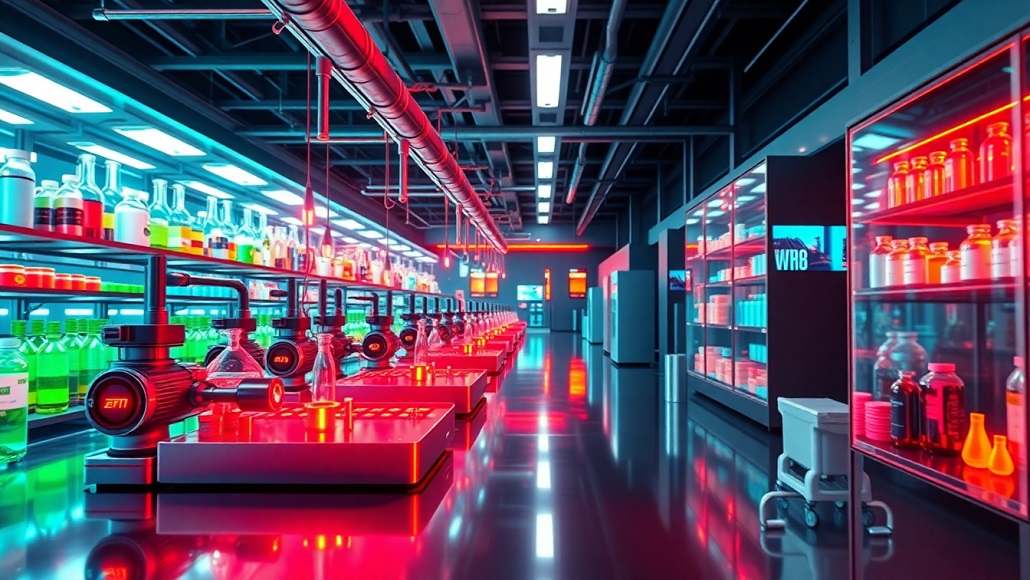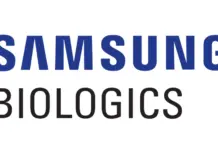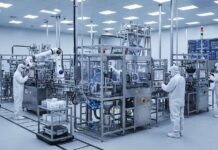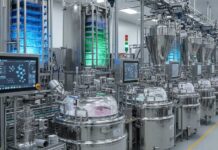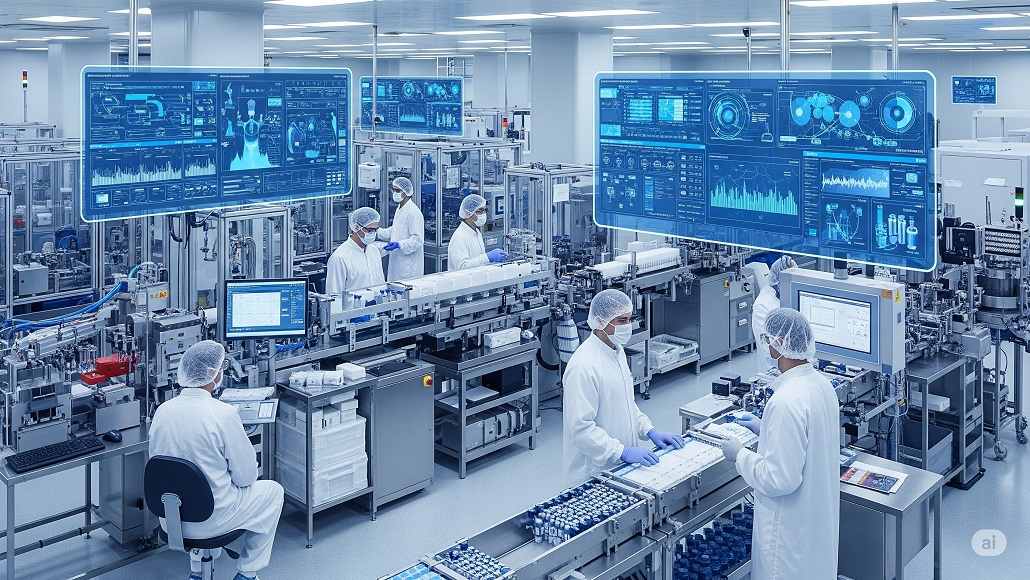The pharmaceutical industry happens to be at the forefront when it comes to integrating cutting-edge technology so as to enhance the efficiency, scalability, and quality of drug production.
Due to the advent of Industry 4.0, or the fourth industrial revolution, drug manufacturing has gone on to enter a transformative phase, which is characterized by smart factories, data-driven decision-making, and interconnected systems. These advancements are helping the pharmaceutical companies to attain unprecedented levels of scalability as well as an adaptability, which are indeed very necessary in order to meet the growing demand when it comes to medicines all across the world.
It is well to be noted that smart factories are making utmost use of advanced capabilities like the Internet of Things, artificial intelligence, robotics, as well as big data analytics in order to revolutionize their pharmaceutical manufacturing. Let us explore the smart factory concept, its role when it comes to scalable drug manufacturing, and how Industry 4.0 technologies and techniques are shaping the future of this sector.
Smart factories in pharmaceuticals—The concept
It is worth noting that a smart factory happens to represent a completely integrated, data-driven, and automated manufacturing environment. Unlike the old manufacturing facilities, which depended heavily on manual processes as well as isolated systems, smart factories function on interconnected platforms, which help with seamless communication across devices, people, and processes. When we talk of pharmaceutical production, the primary objective of a smart factory happens to be enhancing the efficiency while at the same time maintaining the strict quality benchmarks. This is by way of real-time tracking, predictive analytics, as well as automated systems, which collectively help with adaptive as well as error-free functioning.
What are the major advantages of Industry 4.0 technologies within the drug manufacturing gamut?
Interestingly, the adoption of smart factory technologies happens to provide numerous advantages. Driven by advanced automation, interconnected systems, as well as data-driven decision-making, the adoption when it comes to smart factories has gone on to introduce unmatched opportunities in terms of process optimization, quality assurance, scalability, as well as real-time decision-making and, of course, efficiency in operations. Apart from this, cost efficiency is something that is also a major element that has cropped up. Let us explore the critical advantages of Industry 4.0 technologies that they bring to the fore when we talk about drug manufacturing.
-
Scalability – helping with adaptive production in order to meet the market demand
It is well to be noted that one of the most important advantages of Industry 4.0 technologies happens to be their capacity to enable the pharmaceutical companies to scale their production in an effective way. Traditional drug manufacturing processes often happen to be rigid and also complex, thereby requiring more time and resources in order to alter production volumes. In contrast, smart factories are equipped with Industry 4.0 capacities, which are designed to adapt to the fluctuating demand in a very seamless way. Connected systems, apparently, which are powered by the Internet of Things, help with real-time tracking of production lines by enabling the manufacturers to evaluate their capacity and dynamically adjust the output accordingly. For example, during a public health crisis like a global pandemic, the demand when it comes to life-saving medicines or even vaccines may grow at an unprecedented rate. Industry 4.0 technologies help the pharmaceutical companies to speed up their production without compromising on quality or, for that matter, substantial delays. This kind of scalability makes sure that the companies go on to meet both their present as well as future market needs in an efficient way and hence provide a competitive edge in an environment that has high demand.
-
Process optimization – making use of advanced analytics for streamlined workflows
It is worth noting that process optimization happens to lie at the heart of Industry 4.0 execution within pharmaceutical manufacturing. Data that is generated by way of IoT-enabled devices, advanced analytic tools, and sensors is leveraged so as to identify any bottlenecks, inefficiencies, as well as potential enhancements within the production workflows. By way of analyzing the data, and that too in real time, manufacturers happen to gain valuable insights, which enable them to adjust their process further, decrease the waste and energy consumption, along with costs.
For instance, when it comes to the production of biologics, which need accurate control over the parameters like temperature, pH, and nutrient levels, IoT sensors make sure that these variables are consistently tracked and altered in order to maintain the right conditions. This level of control not just elevates the product yield, but it at the same decreases the likelihood of any sort of batch failures, which is indeed a very crucial factor in making sure that cost efficiency and patient safety are maintained.
-
Quality assurance—enhancing the benchmarks by way of automation as well as continuous tracking
Maintaining continuous quality within pharmaceutical manufacturing is indeed a challenge that is multifaceted, especially when producing intricate therapies like monoclonal antibodies or gene therapy. Industry 4.0 technologies happen to offer a transformative solution by way of integrating automation along with continuous quality tracking at every stage of production.
The automated robotic systems, which are equipped with sensors that are advanced, get used for processes such as packaging, labeling, and aseptic filling. These robots function with accuracy and consistency, eradicating any kind of variability that is associated with manual interventions. Moreover, real-time tracking systems monitor major quality parameters like chemical composition along with sterility at multiple points throughout the production line. This kind of consistent feedback makes sure that any deviations from existing specifications get detected and also addressed immediately, thereby reducing any sort of risk in terms of defects that reach the market.
-
Real-time decision making – making utmost use of data insights in order to have better operational agility
The integration when it comes to IoT devices as well as big data analytics within manufacturing environments has gone on to revolutionize decision-making within pharmaceutical production. With real-time access when it comes to comprehensive data on every element of the production process, manufacturers can go ahead and make informed decisions in a very fast and confident way.
For instance, when a crucial parameter like temperature in a bioreactor starts to deviate from its optimal range, real-time tracking systems go on to immediately alert operators with regard to this. Advanced analytics tools offer insights into the potential root cause of this challenge by helping with swift corrective measures, which could minimize the downtime and also prevent any loss of product quality. Historical data collected by way of the systems can get used in order to predict future trends, thereby helping the manufacturers to anticipate barriers and also proactively execute any sort of solutions.
This sort of an enhanced decision-making capacity is especially valuable in scenarios when time is of the essence, like mass production of vaccines or any other medications that are needed in an emergency.
-
Utilisation of resources – Optimising materials as well as energy in terms of sustainable manufacturing
Incorporating the Industry 4.0 technologies within pharmaceutical manufacturing also goes on to promote sustainability by way of optimizing the usage of raw materials, energy, as well as other resources. Advanced process control systems, which are powered by IoT sensors as well as machine learning algorithms, make sure that the production process happens to function at its peak efficiency, thereby reducing any sort of waste and also minimizing the impact on the environment. For example, single-use systems (SUS), which are rolled out in many smart factories, eradicate the requirement of extensive cleaning processes, thereby significantly decreasing water and chemical usage. In a similar way, predictive maintenance systems also make sure that equipment happens to operate efficiently, thereby safeguarding against energy losses that are caused by machinery malfunction. The data-driven insights offered by Industry 4.0 technologies also help the manufacturers to pinpoint opportunities in terms of using and recycling materials, thereby further promoting practices that are eco-friendly.
Through balancing functional efficiency along with sustainable objectives, pharmaceutical companies can decrease carbon footprints and at the same time also maintain their profitability levels in addition to adhering to regulatory compliance.
-
Cost efficiency – decreasing the operational expenditure by way of smart investment
Although the initial investment in Industry 4.0 technologies may very well be quite substantial, the long-term cost savings that they deliver are unmatched. Automation, real-time monitoring, as well as predictive maintenance decrease the requirement for manual labor, lessen the downtime, and also safeguard against costly production errors. Moreover, the scalability when it comes to smart factories enables the manufacturer to alter their output without even incurring significant overhead expenses by making sure that resources get allocated in an efficient way.
For instance, a pharmaceutical company that executes predictive maintenance within its manufacturing facility can very well avoid any sort of unplanned equipment failures, which often result in costly repairs, thereby leading to production delays. The capacity to schedule maintenance activities across the planned downtime makes sure that production schedules don’t get hampered, hence maximizing the functional efficiency. With time, these expenditure savings go on to offset the investment that was made initially, hence offering a robust return on investment and also fostering a stability of finances in the long term.
Automation and robotics role
Automation along with robotics happens to be an integral component of Industry 4.0 within smart factories. These systems go on to take automation much beyond the basic mechanization by way of incorporating intelligent decision-making capacities. Robotics systems that are used within pharmaceutical manufacturing are equipped with advanced sensors as well as processors that enable them to perform intricate tasks with accuracy. For example, collaborative robots, or cobots, work alongside human operators, thereby taking care of tasks like material handling along with quality inspection, and that too with speed and precision.
Real-time tracking along with predictive maintenance
Real-time monitoring systems, which are powered by IoT devices, happen to play a very critical role in making sure that there is a smooth operation of smart factories. These systems consistently monitor the critical process parameters and also offer immediate feedback to their operators. In any event of extreme deviation or even minimal deviation for that matter, corrective actions are taken in a preemptive way, thereby lessening the production disruption.
Predictive maintenance, which is enabled by AI as well as advanced analytics, goes on to complement real-time tracking by identifying equipment failures before the event takes place. By evaluating the historical data and also pinpointing early warning signals, predictive maintenance systems enable the manufacturers to schedule maintenance activity across planned downtimes, reduce the cost of downtime, and also extend the equipment lifespan.
What is the path forward – industry 4.0 in pharma?
The shift towards Industry 4.0 within pharmaceutical manufacturing is not a trend but a requirement for staying competitive in a fast-evolving market. Governments as well as industry leaders are now recognizing the significance of digital transformation and hence are offering incentives along with support in terms of the adoption of smart factory tech. As these technologies become more affordable and accessible, their adoption is anticipated to speed up and create new opportunities in terms of scalability, efficiency, and also innovation within the drug manufacturing gamut.
Conclusion
Apparently, smart factories, which are powered by Industry 4.0 technologies, go on to represent the future in terms of scalable drug manufacturing. By way of integrating real-time tracking, predictive maintenance, digital twins, and automation, these facilities are indeed setting new yardsticks within the quality, efficiency, and adaptability universe.
While the journey when it comes to smart factory adoption poses hurdles – which include high upfront costs and also data security issues—the long-term advantages far outmatch these barriers. As the pharmaceutical companies continue to take into account digital transformation, smart factories are indeed going to play a very critical role when it comes to meeting their worldwide healthcare requirements and also making sure of timely delivery of medicines that are high-quality. In an era that is completely defined by rapid change along with innovation, the integration of Industry 4.0 technologies within drug manufacturing is not merely an advancement, but it is a revolution.







